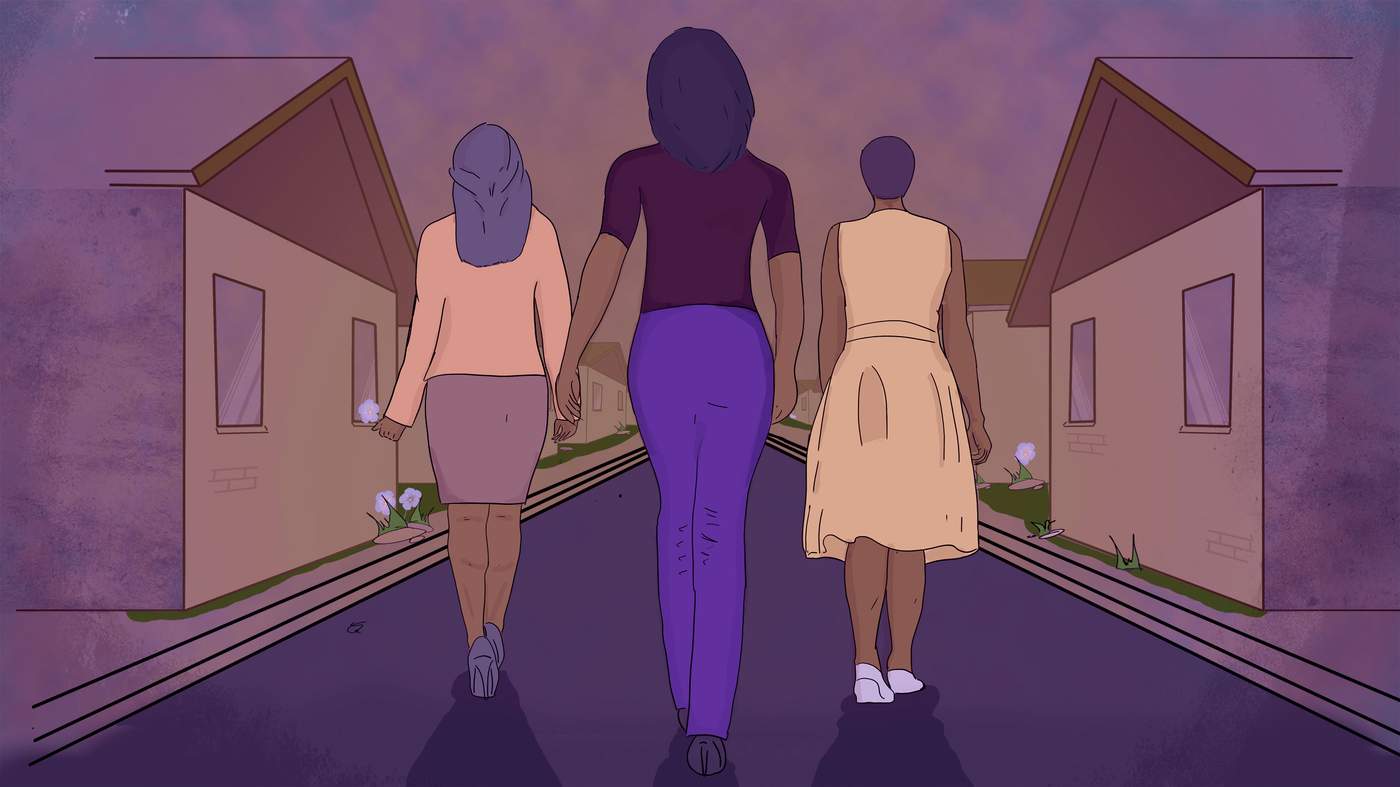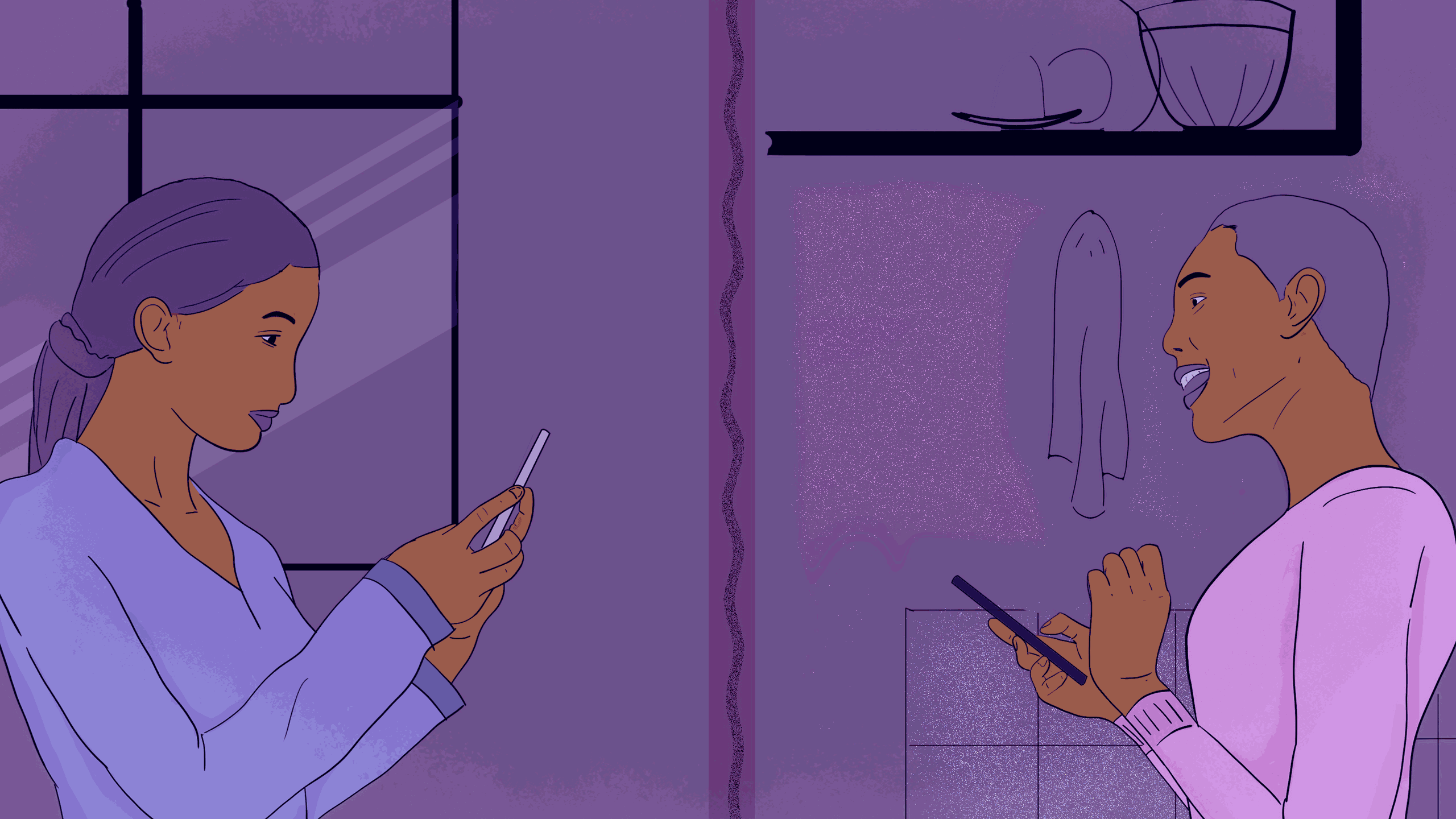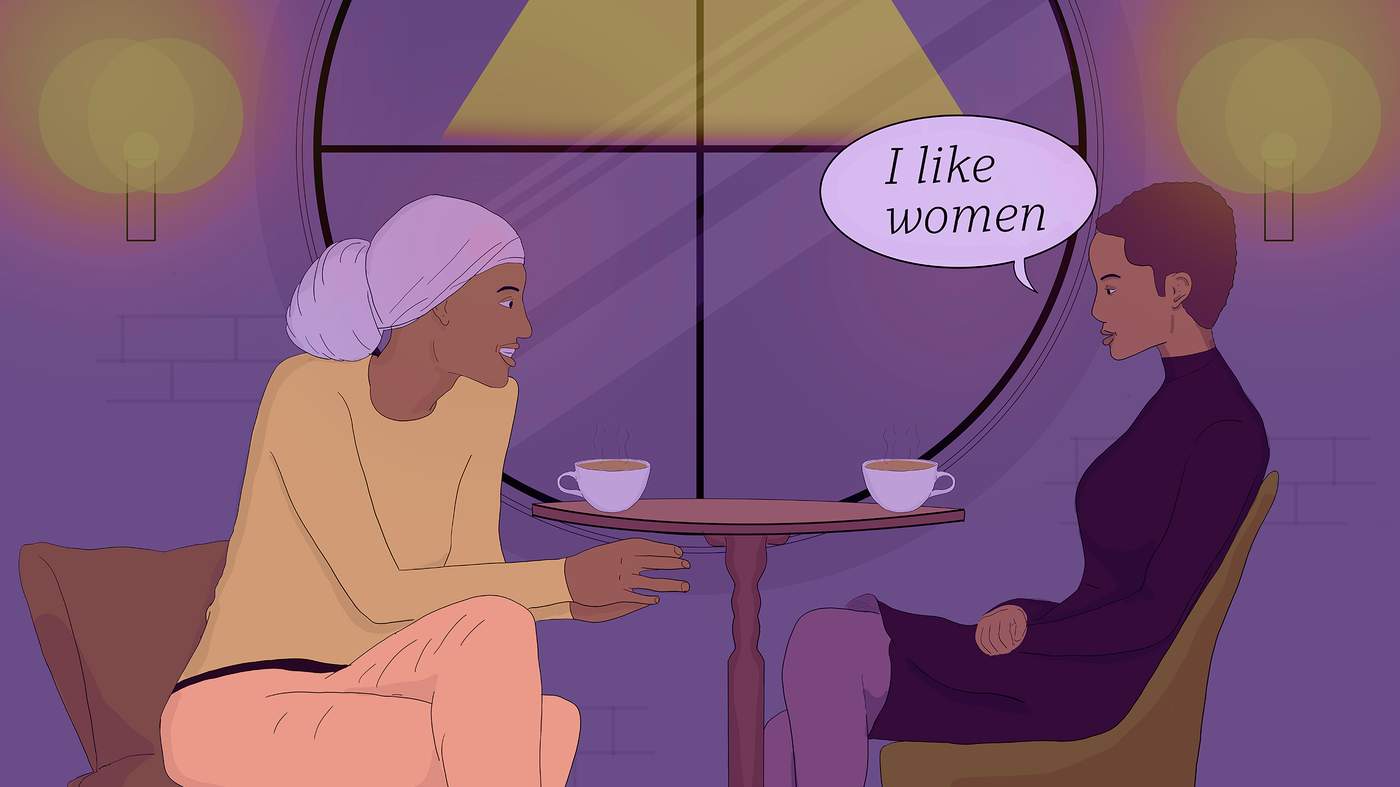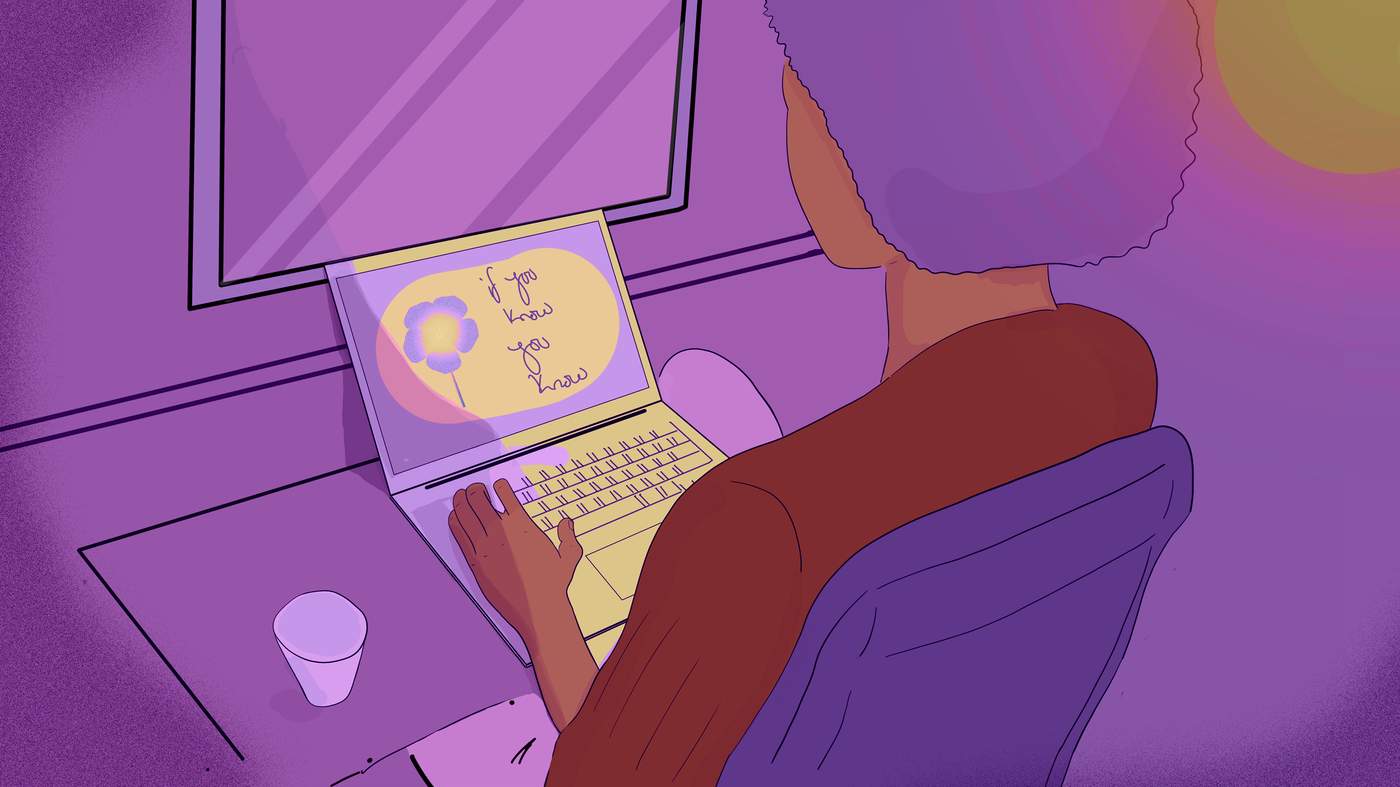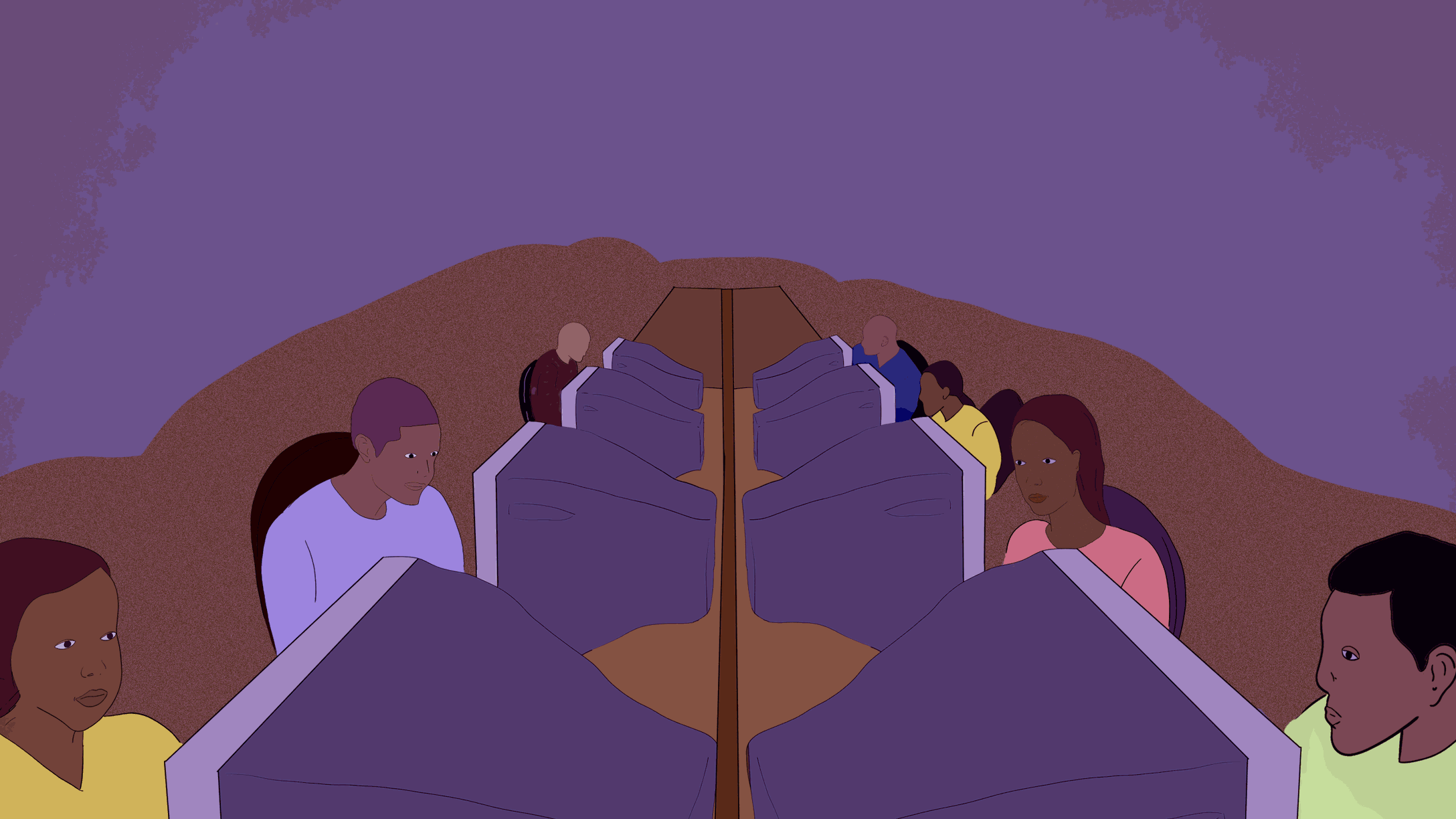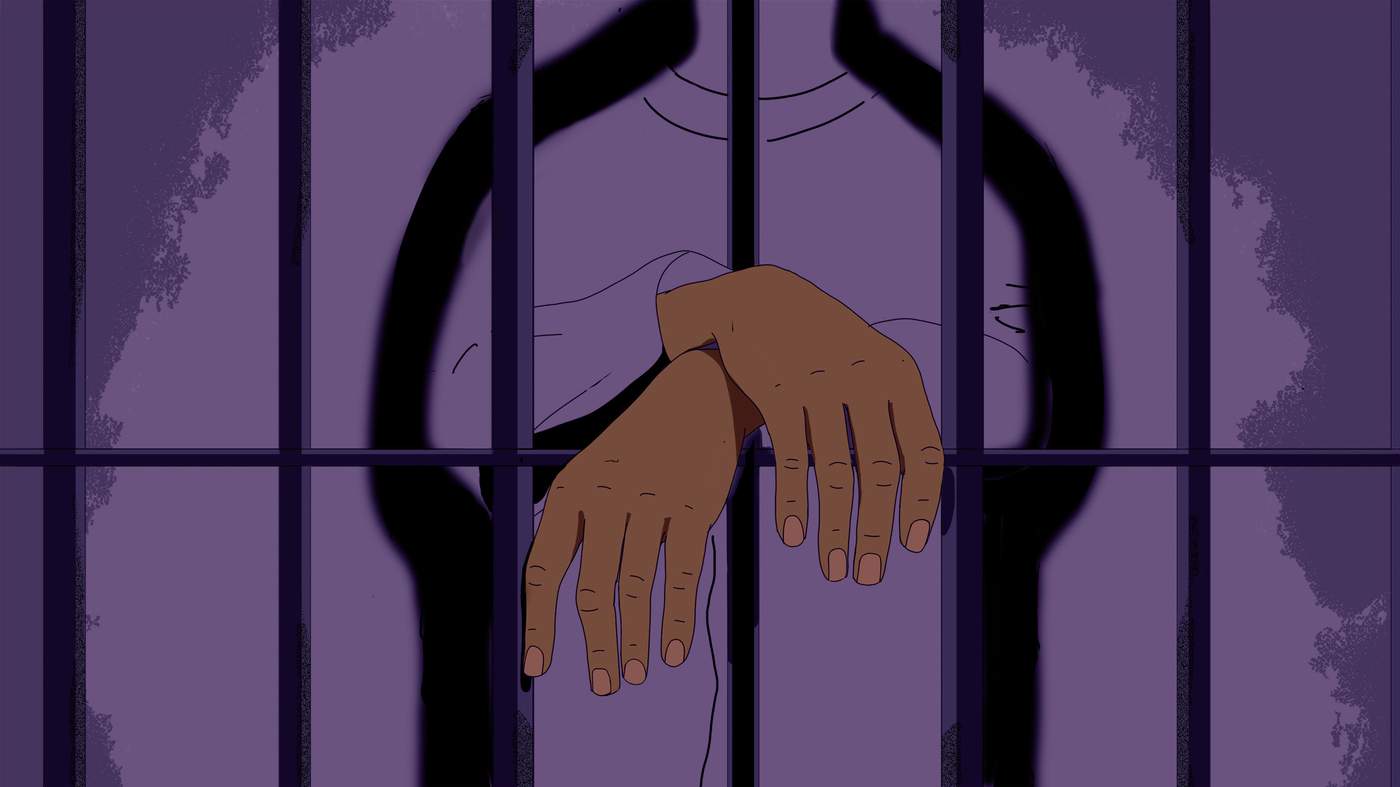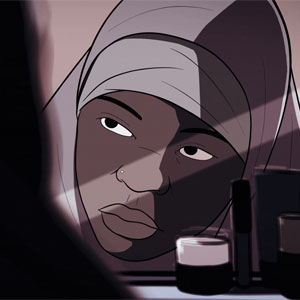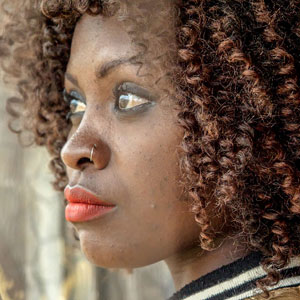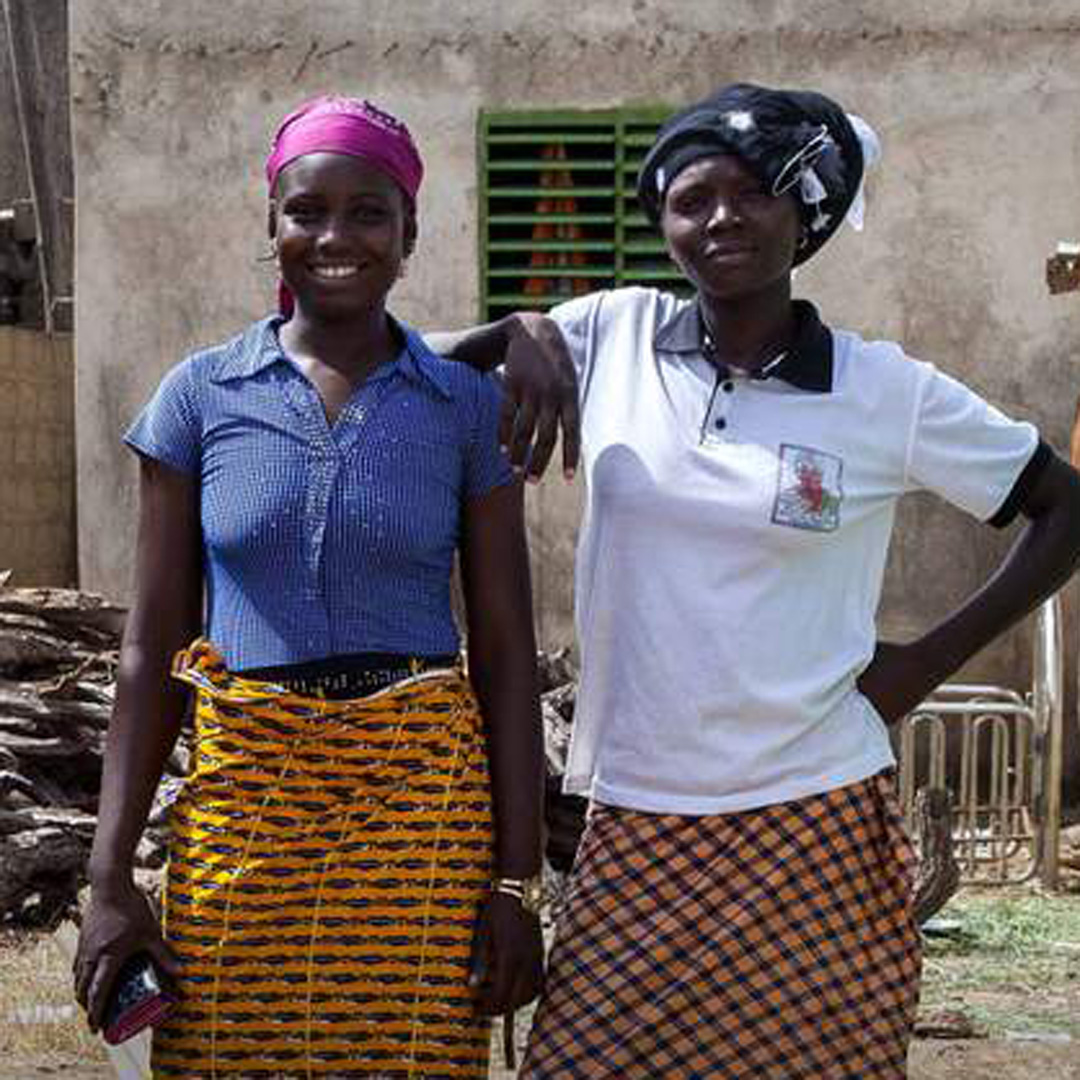Over a period of a few months, the BBC spoke to dozens of young lesbians in a country where homosexuality is illegal. They told us about their day-to-day lives and how they use secret memes to connect with each other on social media platforms and chat apps.
We have substituted those images with that of a violet for the purpose of this report. The violet does not belong to the group in Burundi or - to the best of our knowledge - any other LGBT+ groups in East Africa or the Great Lakes.


The peak of the midday sun has passed.
It’s mild enough to kick a ball around, not oppressive enough to feel faint in the heat.
It’s a great day to meet friends in the park. The women are in high spirits, chatting animatedly, playfully sketching patterns on each other using body paint, and sharing a picnic.
They meet once a month, in different places. Sometimes in public but mostly behind closed doors. Most of them are wearing jeans and T-shirts in various colours, patterns and styles.
The T-shirts are important because printed on each one is a discreet, matching symbol. It’s an in-joke – a sign of their identity and independence. Something only they understand.
This could be a group of friends in any park, in any country.
But this is Burundi, where being who they are is against the law.
The women, who are all in their 20s and early 30s, haven’t known each other long.
“We’d be in so much trouble if people know who we are,” Nella says.
They could be fined or imprisoned. But there is also the danger that people within their own communities may turn on them.
“The worst is death,” says Nella.
Nella
Nella sends a photo to the BBC using an encrypted app. She's pictured sitting on a chair with young children around her.
“My kids,” she types. “They are under 10.”
They are playing up for the camera, contorting their faces into comical expressions.
Nella is wearing a hijab.
Another photo appears and this time she is wearing loose jeans and a fitted T-shirt. It’s the same T-shirt she was wearing in the park with the women.
Her curled black hair is visible and falling on her shoulders. She’s sitting at a table in an open-air restaurant, her arm around a young woman whose hair is styled in thin cornrows. Both women beam megawatt, toothy smiles.
“My girlfriend,” she writes, by way of a virtual introduction. “Aren’t we cute?”
It’s the first time she’s been able to introduce her that way to someone, she says. It feels good.
The pair met on a social networking site and the relationship is still new.
“We’re happy,” she says.
Her family don’t know, of course, and she's taking a risk meeting up. Someone who knows her family may see her. But she's sure she won't be recognised, because when she goes to meet her girlfriend, she removes the hijab she wears at home.
Nella was 17 years old when she fell in love with a girl for the first time. They met through sport – something Nella had been passionate about since she was a young girl.
It didn’t turn into a relationship, Nella says, but she knew then that there was no going back. It wasn’t a phase or a crush.
“I knew with certainty that I liked women,” she says.
She also knew that she couldn’t tell anyone. She was from a conservative Muslim family. Dating was not an option, let alone with a woman.
Nella was born in the city of Bujumbura, the capital of Burundi. The country, which is one of the world's poorest, is located in the African Great Lakes region. It has struggled to gain stability since the end of a civil war in 2005, and when it does hit the international headlines, it's mainly this image that is portrayed.
But this is one-dimensional, says Nella, it’s as if real people with hopes, dreams, love and desire have no place here.
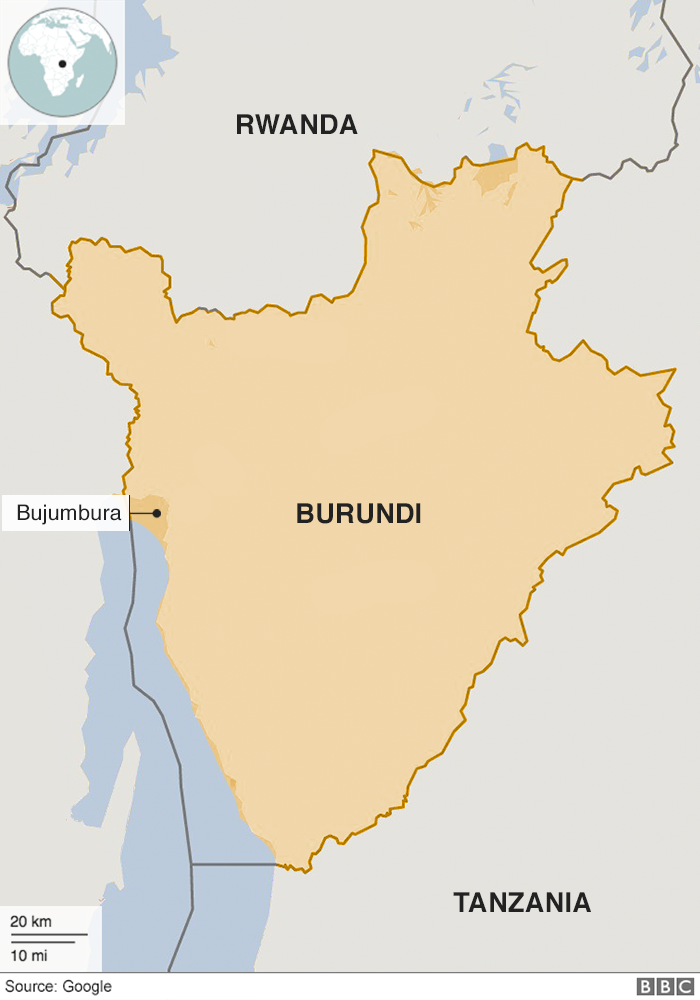
When she was a teenager, Nella dreamed of going to university. But her family were constantly urging her to get married. They would introduce her to members of the extended family, in the hope they could find a match.
When her parents died, Nella's brothers increased the pressure. There was no money for an education, they said, and besides they didn't believe a woman needed one.
They knew of a rich man who was interested in her. There was little time to lose, they insisted. At 20 she was getting on a bit.
A wedding was hastily arranged and Nella resigned herself to becoming a wife.
She says she was forced into marriage, but wonders if “forced” is the right word. “Can you even force someone who has no rights to begin with?” she asks.
As a woman from a country like hers, Nella says her rights were already diminished. And as one of the 2% of Muslims in a majority Christian nation, she felt even more marginalised.
Nella’s husband didn’t know about her sexual identity. It wasn’t a happy marriage. The couple barely communicated and she dreaded intimacy.
After the birth of her youngest child, Nella says she began to feel like the most isolated woman in the world. She doesn't want to go into much detail about her marriage. She says it would compromise her children’s safety.
She turned to social media and carried out searches for women who like women. Suddenly, she realised she was not alone.
She then narrowed her search to Bujumbura.
What she discovered was that there is a shorthand, a secret code, that local lesbian women use to reach out to each other.
It largely relies on internet shorthand, obscure symbols used by lesbians around the world. Nella would send these images and emoticons to other women. Those in the know would respond.
Buoyed by what she found, Nella began connecting with women online. Women like her. Women who soon became her closest friends.
In 2016, her husband found out about these conversations and her marriage broke down. He vowed to keep her sexuality a secret from the wider community for the sake of their children.
Nella took her children and moved in with relatives. They don’t know about her other life.

“There are ‘invisible’ lesbians in every country. We are just one part of it.”
“If we exist here, we exist everywhere.”
“We need to be heard.”
“If you know that we exist, you may start looking for us in your own communities, and in your own families.”
Niya
Niya has just turned 27, and this is the most comfortable she has felt.
But it hasn’t always been this way.
She was brought up by strict parents in a suburban neighbourhood of Bujumbura. She and her siblings had to be home earlier than their friends. Niya had to dress conservatively and was expected to act in a demure way.
So were her friends.
Niya’s father was away a lot, leaving her mother in charge of the family. Niya preferred friendships with boys but these never developed into crushes.
At 14, she became a Christian. Thinking that part of her faith meant that she should avoid dating, she put her lack of romantic interest in boys down to a commitment to God.
At 22, she met a woman who was also in her early 20s, through mutual friends. Bonding over their love of music, they formed a fast friendship.
“We started talking,” says Niya, “Then one day, in the middle of a deep conversation, she turned to me and said, ‘I like women’.”
“I thought, ‘Whoa!’”
Back at home, thinking about what had happened, Niya realised that she had feelings for her friend.
The pair began to date in secret. They’d eat out, go shopping, go to bars. The relationship didn’t last long but one thing was clear: Niya now knew why she was not attracted to men. It had nothing to do with religion.
Two years later, Niya felt she had to tell one person in her immediate family. She chose one of her brothers.
“He only asked me two questions: ‘How long have you known?’ and ‘Are you sure?’”
“I replied, ‘Two years’ and ‘Yes, I’m sure’.”
Niya’s brother nodded, ‘OK, you know I’ve always got your back.’”
The two hugged. And that was the last time they talked about it.
Niya was sure because, like Nella, she had spent a lot of time online.
She had looked up YouTube videos of lesbian vloggers in other parts of the world. She watched films featuring same-sex couples and read a lot of reports on lesbian, bisexual and queer (LBQ) communities. She began to understand the language of the internet.
“I used memes a lot, specific memes, to reach out to other women,” she says.
The BBC messaged Niya to tell her that we would be using images of a violet to illustrate the memes. We chose the symbol - which differs vastly from the symbols the women use - because lesbian women in the 1900s were said to give violets to their girlfriends.
“That’s perfect. It’s our secret Viola Revolution,” she replies.
A jigsaw was slowly beginning to fit together.
Watching the YouTube videos had confirmed to Niya that she was not alone. But where were the other gay women in Burundi?
Niya knew they must exist – it was a matter of finding them.

Leila
Leila was 17 when she realised that she was in love with a female friend.
Leila thought about her all the time. She fantasised about her. It could only be love.
“At first I thought, ‘Oh my God, I’m in love with a woman. What is happening?’”
Leila had grown up in a loving, supportive middle-class family in Bujumbura city. She was popular. She had a boyfriend.
And now here she was, in love with a friend.
After months of thinking about her continuously, she needed to share her feelings. Leila texted the friend.
“Hey, I think I’m in love with you.”
There was silence for hours. Then the friend replied.
“I’m sorry Leila. But no. I don’t like girls.”
Leila was mortified.
“What have I done?” she asked herself.
But she needn’t have worried. Leila didn’t lose her friendship. The two agreed to draw a line under the embarrassing episode.
Relieved, Leila put her months of infatuation down to a phase. It had been a one-off crush, with one woman.
“I thought, ‘When I get over her, I’ll be ‘normal’ again,’” she says.
Then something happened that she didn’t anticipate. Leila’s brother went through her phone and found the text she had sent to her friend.
He showed their mother and an emotional showdown followed.
“Mum cried. I cried. We convinced ourselves it was a phase. She asked me to make an effort to be be ‘normal’. I said I would.”
Leila started dating a man. But something was wrong.
“I wasn’t into it,” she says, “I thought maybe it was because the guy wasn’t cute. So I dumped him and started dating a cute guy.”
It still didn’t work.
Then a male friend asked her if she didn't prefer women.
Leila reluctantly replied, “I’m sure”.
But when he looked at her quizzically, she says the full realisation of who she is hit her. I am a lesbian, Leila told herself.
But she still hoped there would be a way out of it. She prayed. She meditated. She became angry with herself.
But slowly, she began to come to terms with the truth.
When she was 21, she finally came out to herself.
“Every gay person comes out twice,” says Leila. “You first come out to yourself. You have the moment when you realise that there is no going back. This is you. You are gay. Your plans and expectations for what you thought life would be need to adjust. Then there is the second coming out, the public coming out, to the people around you.”
When she came out to herself, Leila began to look for other gay people. She doubted there would be women like her in Burundi, but she searched videos on Facebook and YouTube seeking lesbians in other countries.
“I thought, I might be alone in Bujumbura but I’m not alone in the world.”
Her next step was to explain to her mother that it wasn’t a phase - a hetrosexual life was not for her.
Initially her mother took it badly. But as the days passed she began to ask more questions. Leila’s father was more supportive than she expected.
The family agreed that as a lesbian woman in Burundi, Leila was already in a vulnerable position.
They could protect her while she was in the family home, but they could not guarantee her safety outside if the wrong people found out.
She knew she had to find the community to which she felt she belonged.
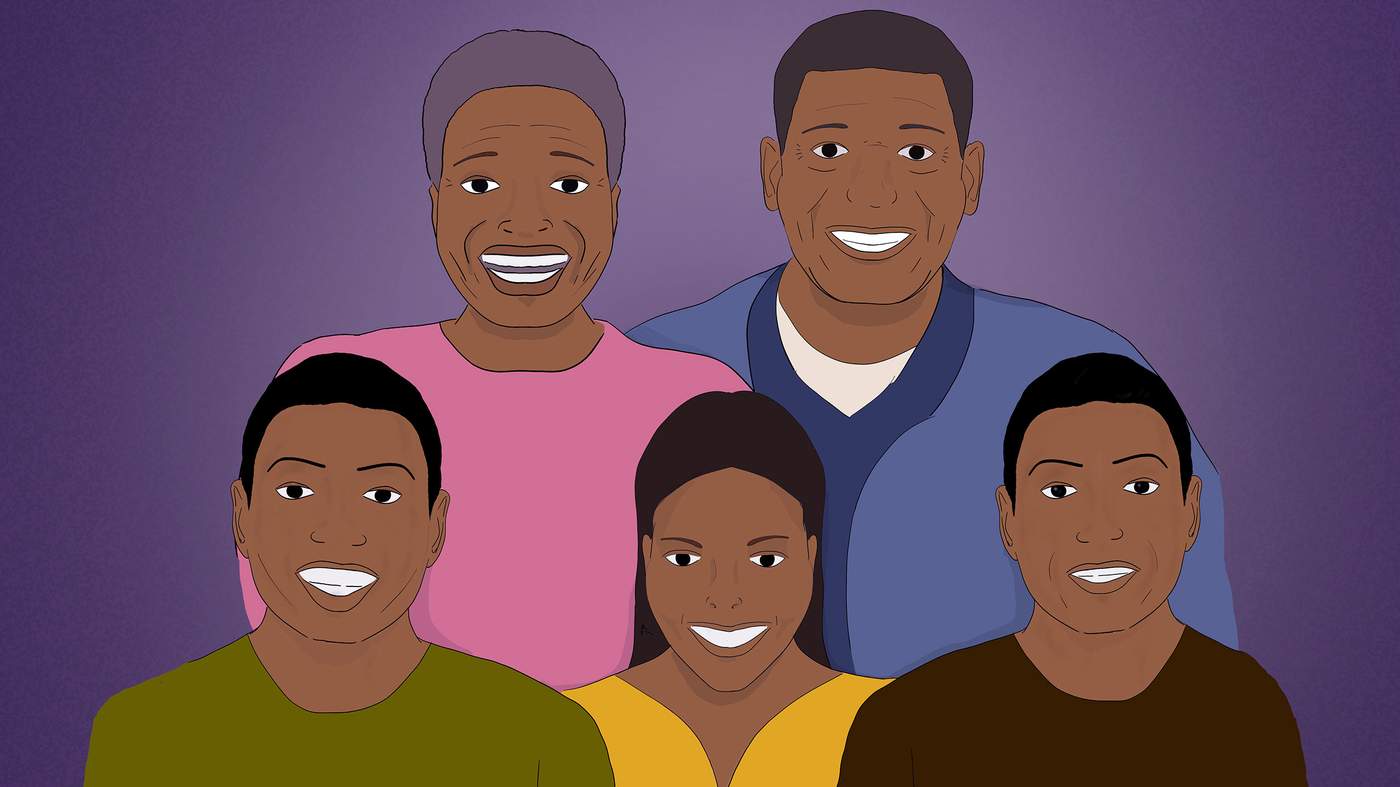
Luck and the internet
There are two ways lesbian and bisexual women find each in Bujumbura - luck and the Internet.
Leila and Niya were lucky to meet at work.
“We started talking at lunch,” says Niya. “Within that conversation, we knew that we were the same. There was a shorthand, a recognition.”
The two quickly became good friends.
“It’s hard to describe how exactly gay people meet each other in Africa,” says Leila. “You don’t have a lesbian hotspot that you can Google - a known place we can meet up.
“You become an expert in picking up vibes from each other, because so much of your communication is non-verbal. You become an expert in body language, eye contact.”
Then there was the internet and social media.
“We don’t have dating apps, but we have social media,” says Niya. “There are certain shorthands there too. A meme we may have picked up from somewhere else, or a coded phrase. Nothing that anyone else outside the lesbian community would ever be able to pick up on.”
Leila, Niya - and later Nella - formed a community. Now there are dozens of women who see themselves as Burundi’s secret lesbian collective. Some have support from their families. A few are married with children. No-one is openly out.
When the group first formed, they mostly hung out.
Burundi is well known in the Great Lakes for its vibrant nightlife. Bujumbura has fewer than 500,000 inhabitants, but maintains a vivid youth culture.
The city, with its colonial-era Art Deco buildings surrounding a market, a football stadium and places of worship, sits on the shores of Lake Tanganyika.
The country has been home to bouts of conflict since independence in 1962. But today, for many young people enjoying the nightlife in Bujumbura, those tensions feel another lifetime away.
Tourists from neighbouring Rwanda, Tanzania and the Democratic Republic of Congo can be found enjoying the nightlife in the clubs or the five-star hotel bars.
Leila, Niya, Nella and their friends would often meet at these places. But listening to each other’s life stories led to a sombre realisation.
Being a lesbian in Burundi was not just culturally frowned upon - it was dangerous.
Dark side
In 2009, the government signed into law a new criminal code penalising same-sex relations between consenting adults. Penalties include imprisonment of up to two years and/or a fine of up to 100,000 francs (US$55).
Very little is known about lesbian rights in Burundi.
An often-cited report by Human Rights Watch in 2009 spoke with only 10 members of the LGBT+ community and only one lesbian was interviewed. The BBC has spoken to dozens.
There is little data, and there has been no large-scale collection of testimony, so it is almost impossible to get an accurate picture of their lives.
US government records say that a lesbian couple was arrested in 2012 but released. Other than that, little else is documented.
Nella says she heard of women being killed in rural Burundi for being gay. She also heard of a lesbian who was recently jailed in Bujumbura.
Leila, however, believes the case is not as cut and dried as it seems.
The woman, while being a lesbian, was not arrested for her sexuality - the authorities were unaware of it, she believes. It was because the woman had retaliated against domestic abuse in her family home, and lashed out against her abuser.
Leila thinks domestic abuse in families where a woman is suspected of being lesbian or bisexual is a big cause for concern. The group has heard of abuse as a result of sexuality but it is impossible to verify. Often women withdraw their stories for fear of what might happen to them.
Many members of the group say they have experienced violence at the hands of family members who became suspicious about their sexuality.
After being hit, one woman went to the police station only to be told that “the man who hit you deserves a prize, he was right to beat you up”.
Nella is now divorced but others in the group remain married. Their husbands are not aware of their sexuality.
“There is huge pressure for women to get married,” says Leila. “Many just accept it and get married. If you’re in Bujumbura, you’re lucky, because you have the internet and you can try to look for others like you out in the world. But it’s the rural women we’re concerned about.”
According to Internet World Stats only 4.4% of Burundi’s 11 million-strong population have access to the internet, and almost all of them are based in Bujumbura.
“It's no wonder members of the group are all in the city. But we have a duty to find our sisters who are not,” says Leila.
She and a few other women go out to speak to lesbian and bisexual women in the villages. They hear about them through loose local networks, both on and offline, and through friends of friends.
“We are thinking of ways we can do outreach there.”
“Our community is strong and it’s vibrant,” says Niya.
“Growing up, I used to wish that I was ‘normal’,” says Leila. “Now we joke about how we’re not normal. We say we’re aliens and we have superpowers.”
They hope this is the beginning of the conversation. The beginning of a Viola Revolution.
